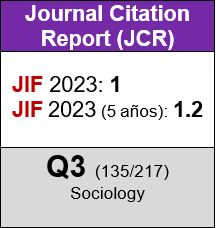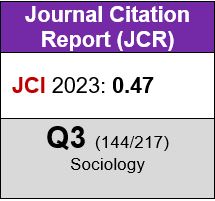La generación 1.5 de inmigrantes en España ¿La crisis de empleo les ha afectado igual que a la primera generación?
DOI:
https://doi.org/10.5477/cis/reis.164.21Palabras clave:
Antigüedad labora, Asimilación, Crisis económica, Desempleo, Inmigrantes, Segunda generación, Mercado de trabajoResumen
Este artículo se centra en los inmigrantes de generación 1.5, es decir, aquellos que emigraron con 12 años o menos. Usando datos de la EPA, analizamos la probabilidad de estar desempleado durante la reciente crisis económica. Los análisis indican que los 1.5 tienen un mayor riesgo de no trabajar en comparación con el resto de inmigrantes y autóctonos, aunque la brecha queda parcialmente explicada por algunas características socio-demográficas. Lo importante radica en que, conforme transcurre el tiempo, logran invertir su desventaja con respecto a la primera generación e igualarse con los españoles. Los resultados apuntan a que los 1.5 tardan más tiempo en comenzar a trabajar, pero lo compensan consiguiendo buenos empleos. Esta estrategia resulta en que la antigüedad laboral vaya acompañada de una mayor protección, rendimiento del que la primera generación se ve privada.
Descargas
Descargas
Publicado
Cómo citar
Número
Sección
Licencia
Derechos de autor 2024 Revista Española de Investigaciones Sociológicas

Esta obra está bajo una licencia internacional Creative Commons Atribución-CompartirIgual 4.0.
Permite Compartir — copiar y redistribuir el material en cualquier medio o formato, Adaptar — remezclar, transformar y construir a partir del material para cualquier propósito, incluso comercialmente.








